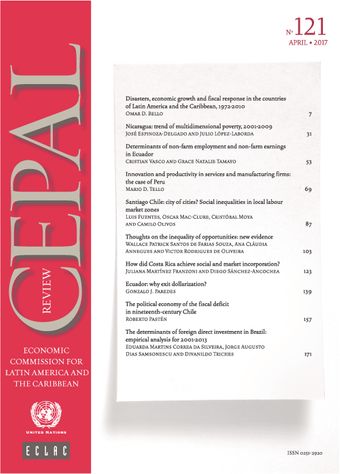-
How did Costa Rica achieve social and market incorporation?: Juliana Martínez Franzoni and Diego Sánchez-Ancochea
- Source: CEPAL Review, Volume 2017, Issue 121, Oct 2017, p. 123 - 137
- Spanish
-
- 23 Oct 2017
Abstract
In 1980, just before the debt crisis and in contrast with the experience of the rest of Latin America, almost all Costa Ricans had formal jobs and high-quality social services. To explain this double social and market incorporation, the present article calls into question the role of land distribution, high-quality public institutions and democracy. Instead of these, it focuses on the State-building process whereby a small emerging elite of business owners and urban professionals, drawing on and adapting international ideas, used public policy to deal with social conflict and expand their own economic opportunities. Looking beyond Costa Rica, this analysis is particularly germane at a time of growing emphasis on the political economy of public policy and the still inadequate attention paid to the elites involved in designing it.





